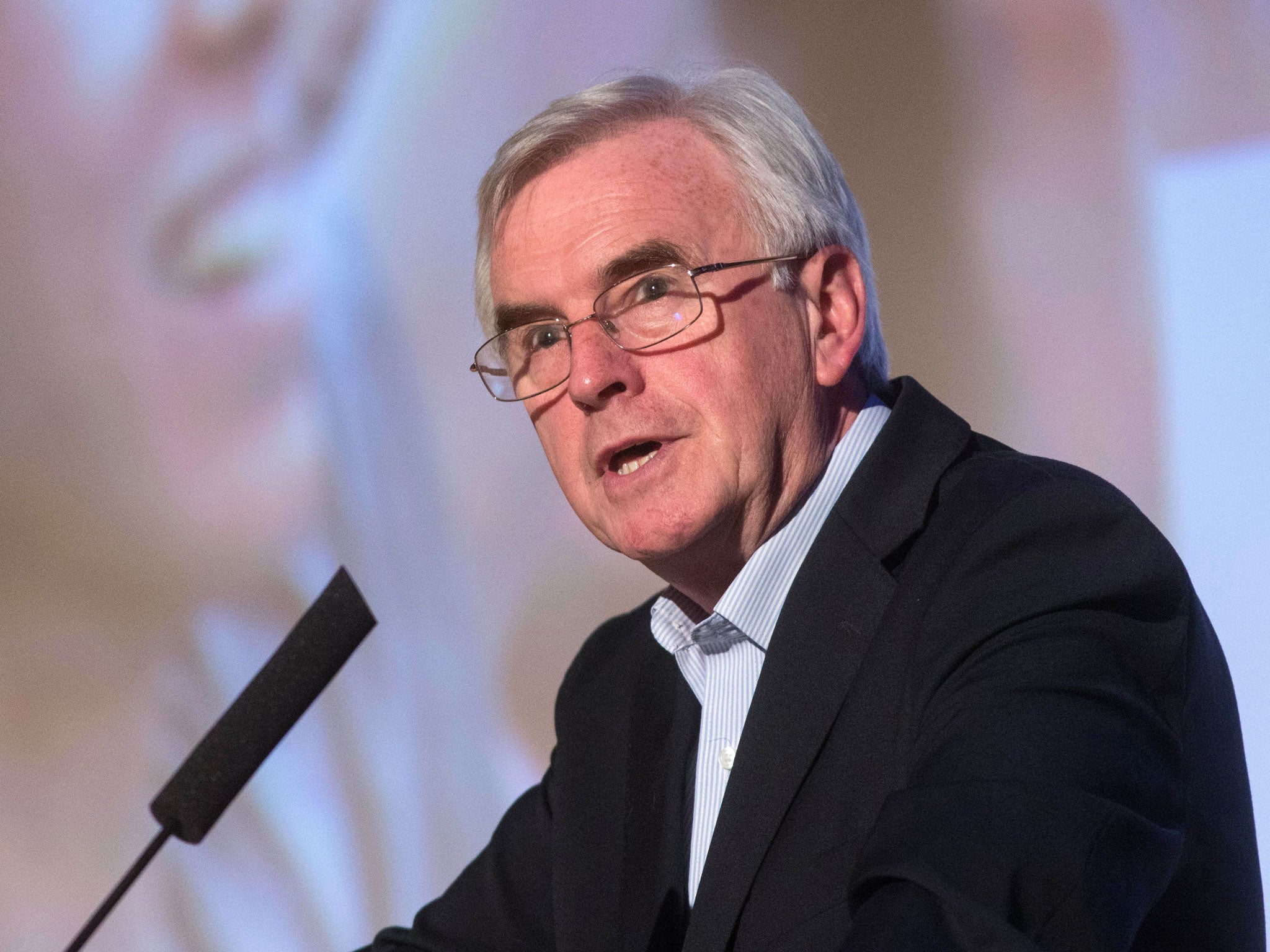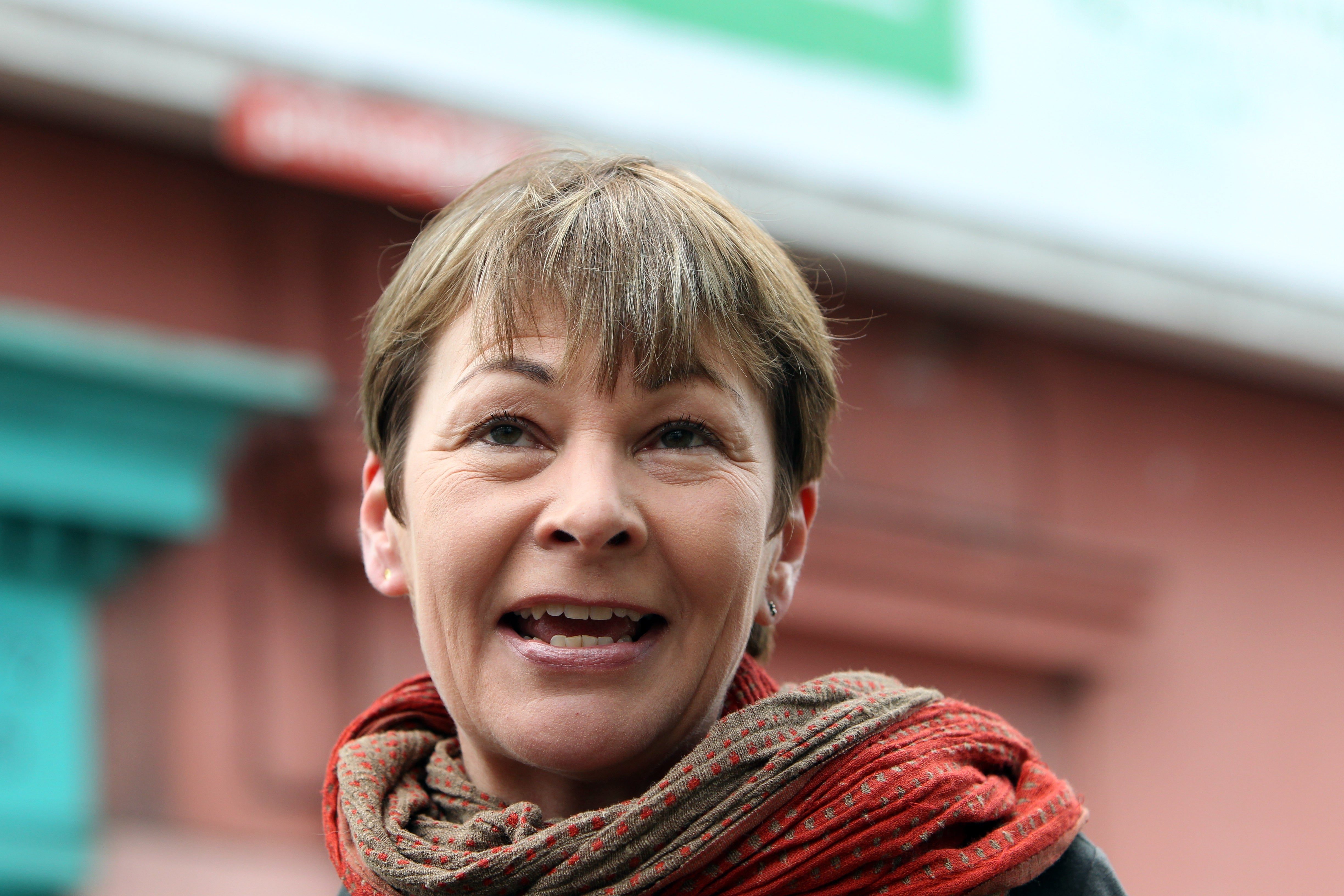Labour manifesto could include universal basic income pilot, John McDonnell says
New report suggests a universal basic income could cut child poverty by 45 per cent but would require tax rises that would be politically impossible in current circumstances

Labour’s election manifesto could include a commitment to pilot the so-called “universal basic income” policy, John McDonnell has said.
Basic income is the idea of remodeling the welfare state around an unconditional flat rate payment to all citizens whether they are in work or out of work.
At the weekend the Shadow Chancellor said his party was taking a close look at the approach as a means of addressing changes in the labour market and reducing poverty
On Monday night at an event in Parliament he gave more details, revealing that a pilot of the policy was explicitly being considered for party’s election manifesto.
Though Mr McDonnell said he did not want to commit his party to anything prematurely, he said its manifesto “may well” include such a pilot.
“Labour Party policy over the next 18 months will be open to debate; the policy forum process is going ahead. The more I think we can insert ideas into that debate, the more creative it will be,” he said.
“That’ll lead to manifesto commitments, some of which may well be commitments to pilots, experiments, etc, to gradually introduce [universal basic income] in some way.”
Pilots for basic income are being put in motion in Finland, California, as well as some Dutch cities. There has also been interest in the policy from legislators in the UK and France, where amendments and motions have been proposed calling for more research.
The Shadow Chancellor was speaking at the launch of a report by the think-tank Compass, which modeled various scenarios of universal basic income.

The report concluded that a “hybrid” basic income which complemented rather than replaced the existing benefits system would cut child poverty by 45 per cent, leave the vast majority of people better off, and cost a relatively affordable £8 billion after concurrent tax rises.
It suggested that pure basic income systems either created too many losers or would require politically impossible tax rises in current circumstances, however.
Critics say the basic income is not a wise way of spending money which could be more directly redistributed to the poorest.
Mr McDonnell told the launch of the report that in some ways child benefit already shared some of the same characteristics of a basic income.
“In my youth I was a researcher at the TUC, and I can remember when child benefit came about … I can remember all the arguments about that then: ‘something for nothing’, or ‘you’ll be encouraging people to breed’,” he said.
“I can remember all the arguments back then about how it was impractical, people wouldn’t accept it, and actually it was probably one of the most successful things that did occur under successive governments. It was actually a simple form of basic income.”
Labour MP Jonathan Reynolds, Green Party MP Caroline Lucas, and SNP Westminster work spokesperson Neil Gray also addressed the event.
Mr Reynolds said a basic income could form part of a “democratic socialist response to insecurity” and that the policy could be a way for Labour to remain relevant.
Mr Gray said the universality of the payment could help deconstruct the idea of the “deserving and undeserving poor”. Ms Lucas said the policy had a “true liberating potential” to help people achieve more outside the sphere of organised employment.
A poll conducted last month found that around two thirds of the British public were positive about the idea of a universal basic income.
Join our commenting forum
Join thought-provoking conversations, follow other Independent readers and see their replies
0Comments